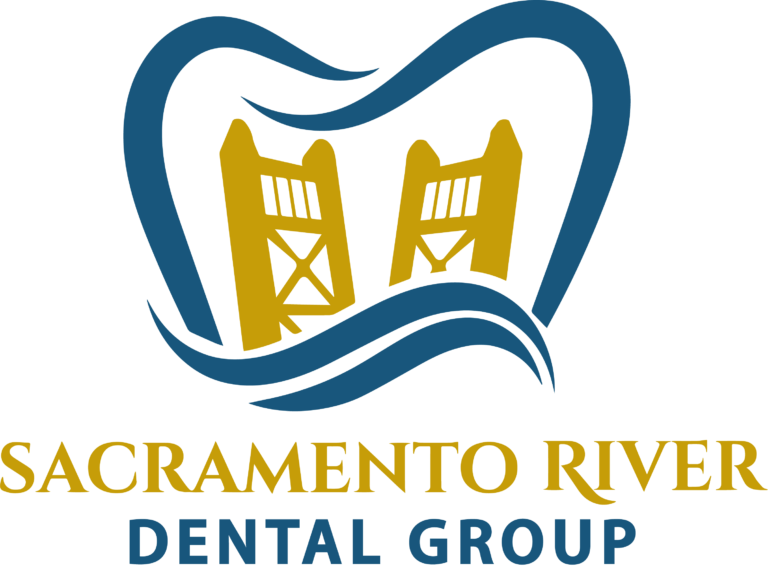Comprehensive Guide on When to Start Brushing Baby Teeth
Oral hygiene is a fundamental aspect of overall health, and establishing good habits early can set the foundation for a lifetime of healthy teeth and gums. One of the most common questions new parents face is when to start brushing baby teeth. This blog post will guide you through the importance of early dental hygiene for babies, the best practices for brushing baby teeth, and expert recommendations on maintaining your child’s oral health.
The Importance of Early Dental Hygiene for Babies
Setting the Foundation for Lifelong Dental Health
Early dental hygiene practices are crucial for preventing future dental problems. According to the American Dental Association (ADA) and the American Academy of Pediatric Dentistry (AAPD), establishing good oral care for infants from the start can help prevent tooth decay, the most common chronic disease in children. Decayed baby teeth can interfere with good nutrition and speech development and can affect the proper alignment of permanent teeth, leading to more significant dental issues later in life.
Starting early with dental hygiene sets the stage for lifelong dental health. Healthy baby teeth hold the space for permanent teeth and guide them into the correct position. Moreover, they play a critical role in your child’s ability to chew food properly and speak clearly. Neglecting oral hygiene can lead to early tooth decay, which can cause pain and infection and impact the child’s overall health and well-being.
Common Myths about Baby Teeth
A common misconception is that baby teeth, also known as primary teeth, are not important because they will eventually fall out. However, baby teeth play a crucial role in a child’s development. They help maintain the space needed for permanent teeth to grow in correctly, aid in proper chewing and nutrition, and are essential for speech development. Ensuring these teeth are healthy can have long-term benefits for your child’s overall well-being.
Supporting Studies and Expert Opinions
Several studies have shown that early intervention and consistent oral care significantly reduce the risk of cavities and other dental issues. The ADA emphasizes the importance of fluoride in strengthening tooth enamel and preventing decay, while the AAPD recommends beginning dental visits by the child’s first birthday to ensure any issues are caught early and managed effectively.
When to Start Brushing Baby Teeth
Before the First Tooth Appears
It’s essential to start oral care even before the first tooth appears. The ADA recommends cleaning your baby’s gums with a soft cloth or a silicone finger brush after feedings. This practice helps remove bacteria and gets your baby accustomed to the routine of oral care, which can make the transition to brushing easier when teeth start to come in.
Wiping your baby’s gums with a damp cloth helps to establish a routine and reduces bacterial build-up that can harm emerging teeth. Using a soft, rubber finger brush can also soothe the gums and make the process more comfortable for your baby.
As Soon as the First Tooth Appears
When to start brushing baby teeth? Brushing should begin as soon as the first tooth appears, typically around six months of age. Use a soft-bristled, infant toothbrush moistened with water and a smear (rice-sized amount) of fluoride toothpaste. Brushing twice a day is recommended to prevent tooth decay and to establish a regular baby oral care routine.
Starting early with brushing helps prevent the formation of plaque and cavities. It also introduces the child to the sensation of brushing, making it easier to maintain this habit as they grow older.
Frequency and Technique
Following a consistent baby teeth brushing schedule is crucial. Brushing your baby’s teeth twice a day, in the morning and before bed, is ideal. Use gentle, circular motions to clean all surfaces of the teeth and along the gum line. This method helps remove plaque and prevents cavities. It’s also important to replace the toothbrush every three to four months or when the bristles become frayed.
Make brushing a gentle, enjoyable experience to help your child develop a positive association with oral hygiene. Use a tiny amount of toothpaste and ensure thorough cleaning without causing discomfort.
Choosing the Right Toothpaste
Fluoride Toothpaste
Fluoride is a crucial element in preventing cavities. The ADA and AAPD recommend using fluoride toothpaste as soon as the first tooth appears. A small amount, such as a smear or a rice-sized amount for infants, is sufficient to protect the teeth without causing fluorosis. As your child grows and learns to spit, you can gradually increase the amount of toothpaste to a pea-sized dollop by age three.
Fluoride helps to strengthen the tooth enamel, making it more resistant to decay. Using the correct amount is essential to maximize benefits while minimizing any potential risks.
Natural and Fluoride-Free Options
For parents who prefer natural or fluoride-free toothpaste, it’s essential to understand that while these alternatives can be effective in cleaning teeth, they might not offer the same level of protection against cavities as fluoride toothpaste. Always consult with your pediatric dentist to choose the best option for your child’s needs.
Discussing your preferences with your dentist can help you choose a product that aligns with your values while ensuring your child’s teeth remain healthy.
Establishing a Baby Oral Care Routine
Making Brushing Fun
Making toothbrushing a fun and engaging activity can encourage your child to participate willingly. Use colorful toothbrushes, sing songs, or play brushing games. There are also interactive apps and videos designed to make brushing a fun part of your child’s daily routine.
Creating a positive and enjoyable experience around brushing can help make it a natural part of your child’s day. Involve them in choosing their toothbrush and use songs and stories to keep them engaged.
Setting an Example
Children often mimic their parents’ behavior. Brushing your teeth together as a family can help reinforce the importance of good oral hygiene. Let your child see you brush your teeth and encourage them to join you. This shared activity can make brushing a positive and consistent part of your child’s routine.
Modeling good dental habits is one of the most effective ways to teach your child. When they see you taking care of your teeth, they are more likely to follow suit.
Common Challenges and Solutions in Brushing Baby Teeth
Teething Pain
Teething can make brushing uncomfortable for babies. To alleviate teething pain, use teething rings or chilled washcloths. Gentle brushing with a soft-bristled toothbrush can also help soothe irritated gums.
Offer teething toys and be gentle during brushing to avoid causing additional discomfort. Using a soft toothbrush can help make the experience more pleasant.
Resistance to Brushing
It’s common for babies to resist brushing initially. Here are some brushing baby teeth tips to make the process smoother:
- Be Patient. Start slowly and gradually increase the duration of brushing.
- Use Distraction Techniques. Sing songs, tell stories, or play a favorite video during brushing.
- Involve Them in the Process. Let your baby hold the toothbrush and explore it while you assist.
- Be Consistent. Establish a routine and stick to it, even if it means only a brief brushing session initially.
Patience and consistency are key. Turning brushing into a game or routine can help your child become more cooperative over time.
When to Visit the Dentist
Starting Dentist Visits for Babies
The ADA recommends scheduling your baby’s first dental care visit by their first birthday. Early dental visits help monitor the development of your child’s teeth and provide parents with valuable guidance on maintaining oral health. During the first visit, the dentist will check for any early signs of dental problems and discuss fluoride needs and dietary habits.
Early visits can help familiarize your child with the dental environment and reduce anxiety about future visits. It also provides an opportunity to address any concerns you might have about your child’s oral health.
Regular Dental Checkups
Regular dental checkups are essential for monitoring your child’s oral health and addressing any issues early on. Your dentist will provide a timeline for subsequent visits and offer personalized advice on brushing, flossing, and other aspects of dental care.
Scheduled checkups ensure that any potential problems are detected and managed early. Your dentist can also provide specific recommendations tailored to your child’s needs.
FAQ:
When Should I Brush My Baby’s First Teeth?
You should start brushing your baby’s teeth as soon as the first tooth erupts, which typically occurs around six months of age. Using a soft-bristled, infant toothbrush moistened with water and a smear (rice-sized amount) of fluoride toothpaste is recommended. This practice helps prevent tooth decay and establishes a regular oral care routine early on.
When Should I Use Toothpaste on My Baby’s Teeth?
Toothpaste should be used as soon as your baby’s first tooth appears. Initially, use a very small amount of fluoride toothpaste—about the size of a grain of rice. This small quantity is effective in preventing cavities while minimizing the risk of fluorosis, a condition caused by excessive fluoride intake. As your child grows and learns to spit, you can increase the amount of toothpaste to a pea-sized dollop by the age of three.
When Can I Start Brushing My Newborn’s Mouth?
Even before the first tooth appears, it’s beneficial to start cleaning your newborn’s mouth. You can gently wipe your baby’s gums with a clean, damp washcloth or use a soft, silicone finger brush after feedings. This practice helps remove bacteria and gets your baby accustomed to oral care, making the transition to brushing easier when teeth start to come in.
What Happens If I Don’t Brush My Baby’s Teeth?
Neglecting to brush your baby’s teeth can lead to several dental issues. The most common consequence is tooth decay, which can cause pain, infection, and difficulty eating. Decayed baby teeth can also affect the proper alignment of permanent teeth, potentially leading to more complex orthodontic problems in the future. Additionally, poor oral hygiene in infancy can impact speech development and overall health.
Establishing good dental hygiene practices early helps prevent these issues and promotes a lifetime of healthy teeth and gums.
Conclusion
Starting early with dental hygiene for babies is crucial for your child’s overall health and development. By beginning to brush your baby’s teeth as soon as the first tooth erupts, using the right amount of fluoride toothpaste, and making brushing a fun and consistent part of the daily routine, you can help ensure a lifetime of healthy smiles. Regular dental visits are also important to monitor progress and catch any potential issues early.
Ensuring your child’s oral health starts with the right dental care practices and professional guidance. At Sacramento River Dental Group in Sacramento, CA, our seasoned professional dental doctors are dedicated to providing exceptional dental care for infants and children. We understand the importance of starting early with dental hygiene and are here to support you every step of the way.
Schedule your baby’s first dental visit by their first birthday and let our experts help you establish a healthy oral care routine. Our team offers personalized advice and comprehensive dental services to ensure your child’s teeth develop correctly and stay healthy.
Don’t wait — give your child the gift of a lifetime of healthy smiles. Contact Sacramento River Dental Group today to schedule an appointment and start your child’s journey to excellent oral health.
Visit our website or contact us to learn more and book your appointment.
Let’s make your child’s dental health a top priority together!


